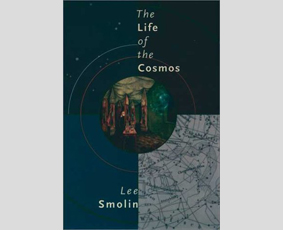This is Smolin’s first popular science book out of three so far, and I knew it would revolve around his evolutionary theory of the cosmos: universes propagating through black hole formation via cosmological natural selection. And while this is indeed among its major subjects, the book turned out to be about much more than that.
Lee Smolin’s main objective consists of proposing hypotheses as to why our universe is “exactly right” for life that can be disproved. This is a property that would actually qualify a hypothesis as scientific, and a property popular multiverse theories and theories based on the strong anthropic principle rather lack.
Moreover, and that fascinated me even more than Smolin’s black holes proposal, he brings forward a hypothesis about the cosmos as an emergent phenomenon in which not only space and time evolve (re: relativity), but where there’s also no fixed background in the form of our laws of physics—which, instead, might have “evolved” as emergent properties of the system.
The idea behind it isn’t easily sketched, and I highly recommend reading the book. It’s well written and, a trademark of Smolin’s books, enriched with observations and hypotheses that betray a solid knowledge of philosophy and the history of science (and which makes them also a treat for those who feel more at home in the humanities).
As a final remark, I’d like to add that the book doesn’t suffer at all from its 1998 release, i.e., shortly before the break-through finding that the expansion of the universe appears to be accelerating. Indeed, this finding even seems to go well together with Smolin’s list of predictions toward his fecund universes theory.
If you have something valuable to add or some interesting point to discuss, I’ll be looking forward to meeting you at Mastodon!

